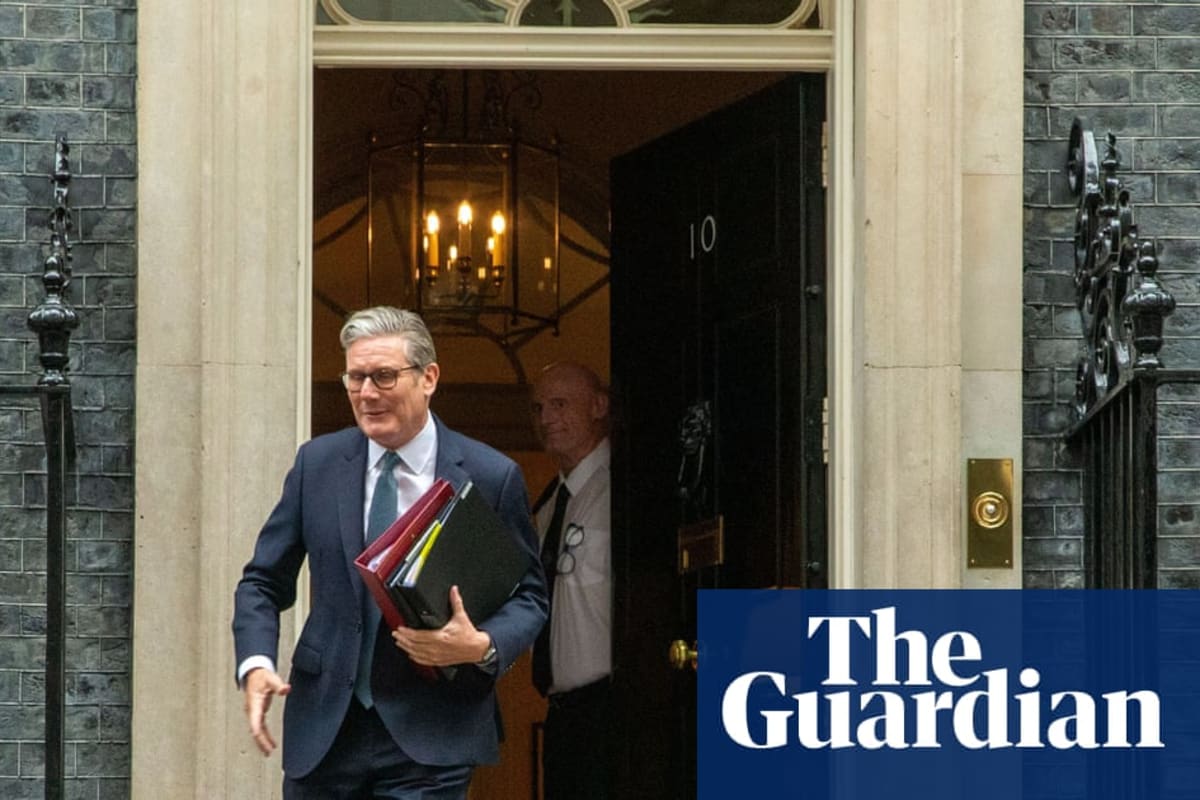Starmer Shakes Up No. 10: Key Aide Replaced

Downing Street Shake-Up: Prime Minister's Aide Departs Amidst Restructuring A recent reshuffle within Downing Street, initiated by UK Prime Minister Keir Starmer, is generating significant attention across the political spectrum The departure of Nin Pandit, the Prime Minister's Principal Private Secretary, after less than ten months in the role, represents a notable shift While official No 10 sources attribute Pandit's move to a newly created policy delivery position, the timing and surrounding circumstances strongly suggest a broader restructuring within the government's operational infrastructure Pandit's appointment, succeeding the highly impactful departure of Sue Gray last autumn, was itself surrounded by considerable speculation Gray, a seasoned civil servant renowned for her meticulous approach, spearheaded the investigation into alleged breaches of lockdown rules at No 10 during the COVID-19 pandemic The aftermath of her findings, and the controversies they ignited, created a palpable sense of instability and eroded public trust within the Prime Minister's office Pandit's relatively short tenure underscores the ongoing struggle to establish effective governance and address the residual impact of these prior events The Prime Minister's stated intention to assume "more direct control of delivery" raises critical questions about the motivations behind this restructuring Is this a reflection of diminished confidence in the existing organizational framework, or a proactive strategy to streamline processes and reinforce accountability The ambiguity surrounding the true reasons for Pandit's departure fuels speculation, potentially highlighting underlying power dynamics and potential challenges inherent in the government's policy implementation strategy Observers note that the shift comes at a crucial time, as the government grapples with pressing economic challenges and prepares for upcoming elections For Southeast Asian readers, this development holds particular significance within the broader context of UK-Southeast Asia relations.
The stability and effectiveness of the UK government are crucial factors influencing bilateral trade agreements, diplomatic initiatives, and crucial development partnerships A period of internal restructuring within Downing Street could potentially influence the pace and direction of these engagements While the immediate impact may not be immediately apparent, it underscores the interconnectedness between domestic political dynamics and their potential ripple effects on international relations Potential implications for Southeast Asia include the possibility of delays or adjustments to planned collaborative projects, shifts in policy priorities, and even changes in the personnel responsible for managing UK-Southeast Asia relations This necessitates a vigilant monitoring of the evolving situation within the UK government and its potential consequences for ongoing and future initiatives in the region Businesses with a vested interest in the UK market or engaged in collaborative ventures with UK institutions should closely monitor these developments for any potential adjustments in policy or operational procedures Key sectors to watch include technology, education, and sustainable development While the personnel change could be interpreted as a sign of instability, it may also signify a strategic effort to enhance efficiency and effectiveness To achieve a balanced perspective, it is imperative to await further developments and official statements from Downing Street, which will provide greater clarity regarding the motivations underpinning these changes and their long-term implications It is crucial to avoid drawing premature conclusions and to rely on reputable news sources for accurate updates on the evolving situation within the UK government The key takeaway is that the replacement of a key aide at No 10, while seemingly an internal matter, carries broader implications This event underscores the ongoing challenges in stabilizing the UK government after a period of turmoil and hints at potential ripple effects across international relations, particularly concerning Southeast Asia Continued monitoring and analysis are crucial to understanding the full implications of this shift The appointment of Pandit's successor will be a key indicator of the future direction of No 10's internal workings Further analysis is needed to fully understand the long-term consequences of this reshuffle, particularly its impact on UK foreign policy and its engagement with Southeast Asia The situation requires ongoing observation and should be assessed within the wider context of current geopolitical dynamics and UK's global strategy The coming weeks and months will be critical in determining the true nature and scope of these changes and their ultimate impact on UK-Southeast Asia relations The potential for both positive and negative consequences exists, and a nuanced and fact-based approach is necessary to properly assess the situation We are committed to providing in-depth coverage as the situation develops This event highlights the complex interplay between domestic political stability and international relations The UK's role in the global landscape, including its partnerships within Southeast Asia, is directly affected by the internal workings of its government It serves as a reminder of the interconnectedness of global affairs and the importance of monitoring domestic developments in key nations for a comprehensive understanding of international events Future reporting will focus on official statements from Downing Street and assessments of the impact on ongoing projects and future initiatives between the UK and Southeast Asian nations The current situation demands vigilance and further investigative journalism to uncover a clearer picture of the motivations behind this personnel change and its potential far-reaching effects We will continue to update this story as more information becomes available, maintaining our commitment to providing balanced and unbiased news reporting Key figures to watch in the coming weeks include the Prime Minister's new Principal Private Secretary, as well as relevant ministers within the Foreign Office and Department for International Trade
